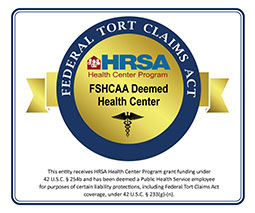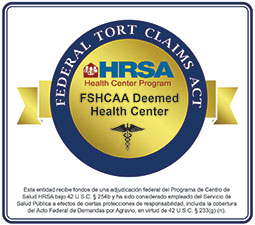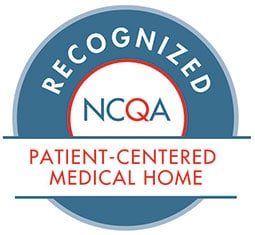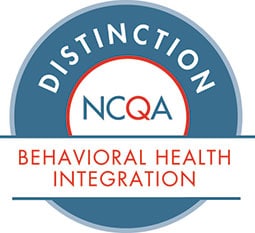Fun with Flu Season!

By Maureen Caro, FNP-BC, Family Nurse Practitioner, Health Partnership Clinic
This is usually the time of year that flu and cold season really starts picking up! The holidays are in full swing, and there’s the rest of winter to get through. This post will look at some common concerns and discuss some pointers about the flu I have encountered.
“How often should I wash my hands?”
Before, during and after preparing food, as well as before eating food. After using the toilet or changing a diaper. After touching pet food or waste, and after handling any trash. Before and after taking care of someone who is sick, as well as before and after taking care of any injuries. And most definitely- after coughing or sneezing!
“Do I need to have triclosan in my hand soap?”
Nope! Triclosan used to be found in many over the counter antibacterial hand soaps, but they were cut out in 2017 as they need more study to be determined to be safe. As long as you are washing for enough time with hot water and soap (20 seconds!) triclosan is not necessary.
“What about alcohol hand sanitizers?”
I love them! Make sure you allow them to dry (also 20 seconds). Be aware that they need to be at least 60 percent alcohol, and they are not to be used if hands are visibly dirty. They do not remove any substances, and do not kill all kinds of germs, so washing with antibacterial soap and water is preferred when available.
“My hands get so dry with washing them! Do you have any creams you recommend?”
Unfortunately, as a nurse, this is a personal issue that I share! I do not have a specific brand, but when you look at the ingredient list, look to avoid fragrance/perfume and denatured alcohol. Cetyl alcohol is a moisturizer, so it is fine. A very good ingredient to see is hydroxyethyl urea (yes, like urine- it’s synthetic, so don’t be grossed out!) which I find really helps, especially if it is used with the first three ingredients.
Now, let’s get to the flu vaccine!
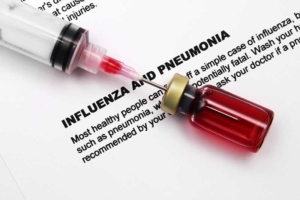
I encounter a lot of misconceptions about the flu vaccine very commonly. When in doubt- ask your provider!
“I missed the flu shot in October; I shouldn’t bother to get it now.”
January and February are often peak flu season times. According to the Centers for Disease Control and Prevention (CDC), “Seasonal flu viruses can be detected year-round; however, seasonal flu activity often begins as early as October and November and can continue to occur as late as May.” I can personally attest…I have had people with flu in May! I offer the vaccine to my patients all the way to the end of March, or as long as there is flu vaccine circulating in the community, in accordance with vaccine recommendations.
“I already had the flu this season; I don’t need the vaccine.”
This goes into another common misconception of the flu. Many people equate it with stomach viruses. I do often see diarrhea, especially more in children than adults, and occasionally vomiting, but influenza is a respiratory illness that is spread primarily by nasal secretions (coughing, sneezing) and is not solely intestinal. Sometimes people will get a stomach virus or a severe cold and say, “It’s the flu.” Influenza is characterized by abrupt onset of chills, muscle aches, high fever, nasal congestion and is best diagnosed by a professional. Even for my patients who have had diagnosed flu earlier in the season, I still recommend the vaccine. The vaccine has three to four strains of flu virus, A and B, so even if you have been sick before with one strain you should still protect yourself against other strains. I have personally taken care of many people that were sick with different strains of flu different times of the year.
“Even if I get sick with flu, antivirals (tamiflu) will cure me.”
Leaving aside the sheer inconvenience and financial problems of missing work or obligations by being sick (and possibly a bacterial infection as a complication, extending your sick time) antivirals are not a wonder drug. Do I prescribe them? Yes. But antivirals really just lessen the course of the illness, usually by about a day. You have to start Tamiflu within 48 hours of your first symptom, which is usually when people are feeling their worst and least inclined to go in. They lessen the likelihood of death, either from flu infection or from a serious bacterial infection as a sequelae of the original infection- NOT fix flu symptoms themselves. Many people expect Tamiflu to act the same way that amoxicillin does for strep throat. Tamiflu is NOT an antibiotic and are not curative in the same way. The cash price for adult flu vaccines with a good coupon is $43, and children’s liquid medication, even with the coupon, is still $101.
“I’ve had the flu shot before and still gotten sick. It’s not worth it.”
Again, many people think they had flu when they didn’t, but sometimes people still get the flu even after having a vaccine. In the event someone still catches the flu it is likely that the symptoms were lessened, the person recovered quicker, and most importantly the vaccine reduces chances of death. Vaccines are a victim of their own success. Because they have made many vaccine-preventable diseases so much rarer, we get a false sense of security. We think that it is unnecessary to get the shot, but if we don’t get it, we are unprotected.
“I am concerned about mercury in the flu vaccine. I don’t like the idea of injecting mercury in my body.”
Neither do I! The preservative of concern is called thimerosal. It contains a chemically bound form of mercury in trace amounts. While thimerosal is not an active form of mercury, if you are concerned about this please ask for a preservative free vaccine. Allergic reactions to it are very rare but do exist. The other common exposure to thimerosal is in eye contact solution, so be sure to tell your provider if you have an allergy to this. It is becoming more and more standard. The routine childhood vaccines have been thimerosal free since 2001. I prefer to use the preservative free flu vaccine for children and pregnant women, just to decrease any concerns.
As always, if you have any concerns, call us and schedule an appointment to discuss it with your healthcare provider! Stay healthy and safe this winter!
To schedule an appointment with Maureen or one of our providers, call 913-648-2266.
References:
1 https://www.cdc.gov/handwashing/when-how-handwashing.html When and How to Wash Your Hands
2 https://www.fda.gov/drugs/information-drug-class/qa-consumers-health-care-antiseptics Q&A for Consumers: Health Care Antiseptics
3 https://www.ncbi.nlm.nih.gov/pubmed/21219730 Outbreaks where food workers have been implicated in the spread of foodborne disease. Part 10. Alcohol-based antiseptics for hand disinfection and a comparison of their effectiveness with soaps.
4 https://escholarship.org/uc/item/11x463rp Urea: a comprehensive review of the clinical literature
5 https://www.cdc.gov/flu/about/season/flu-season.htm When is flu season?
6 https://www.cdc.gov/flu/about/viruses/types.htm Types of Influenza Viruses
7 https://www.goodrx.com/oseltamivir
8 https://www.ncbi.nlm.nih.gov/pubmed/28525597 Influenza Vaccination Modifies Disease Severity Among Community-dwelling Adults Hospitalized With Influenza.
9 https://www.cdc.gov/vaccinesafety/Concerns/thimerosal/ Thimerosal in Vaccines

